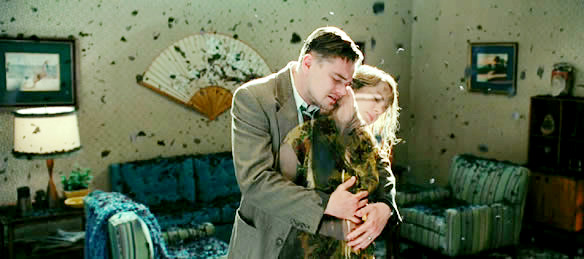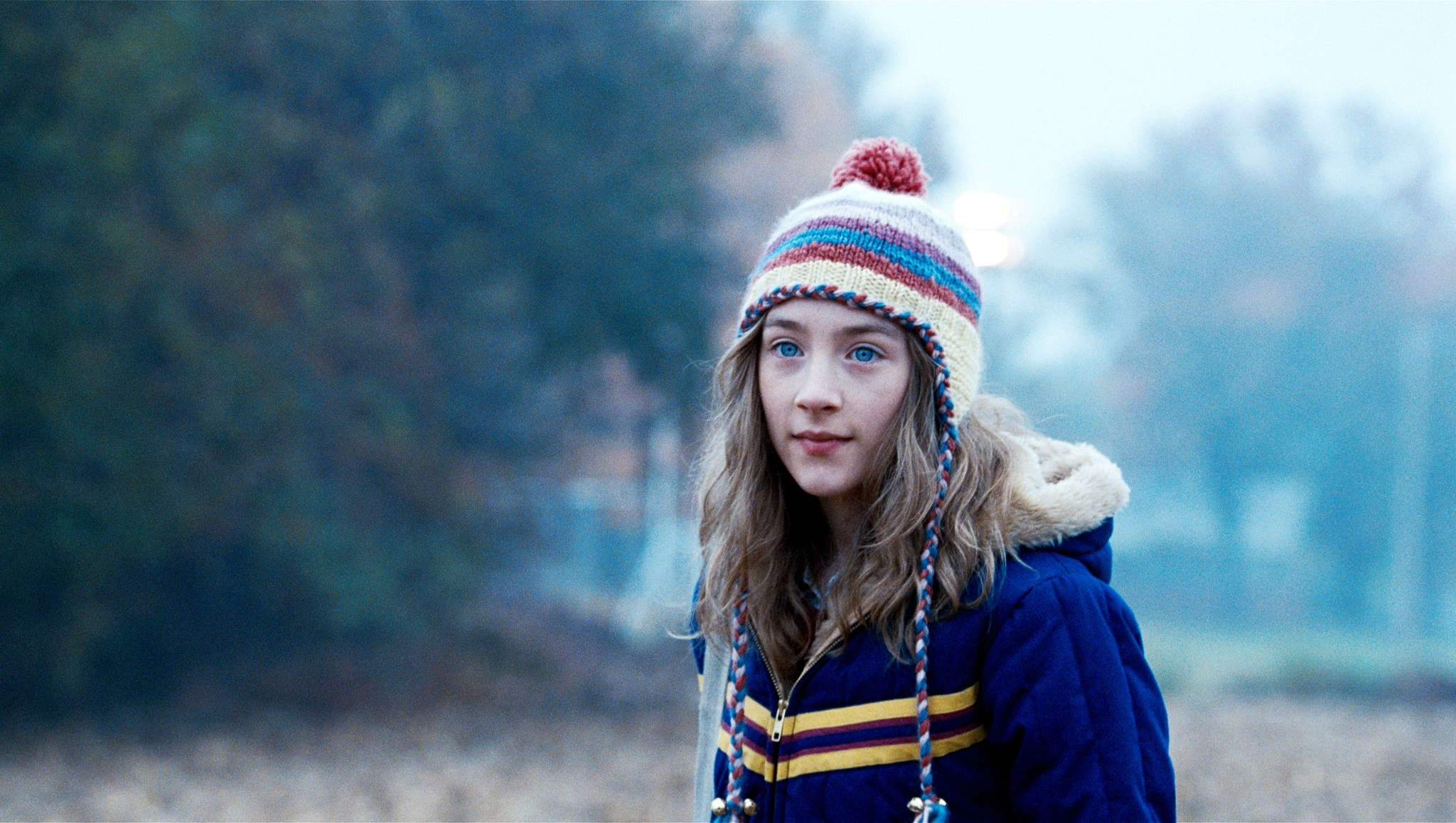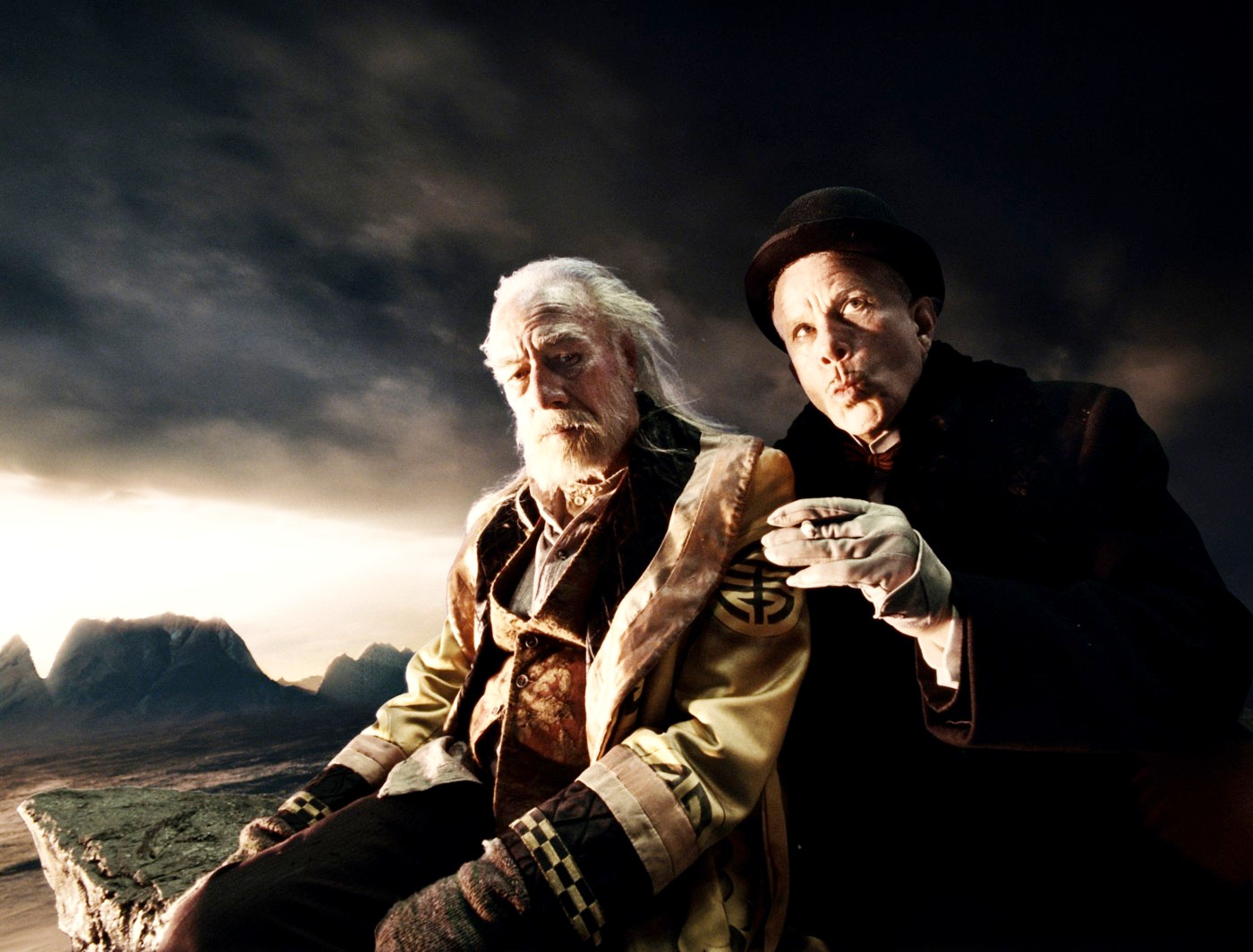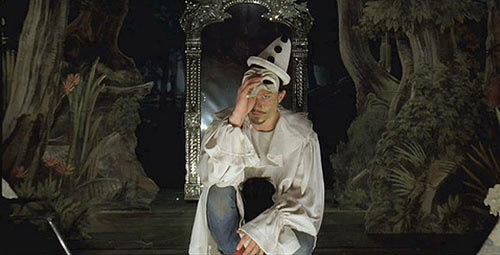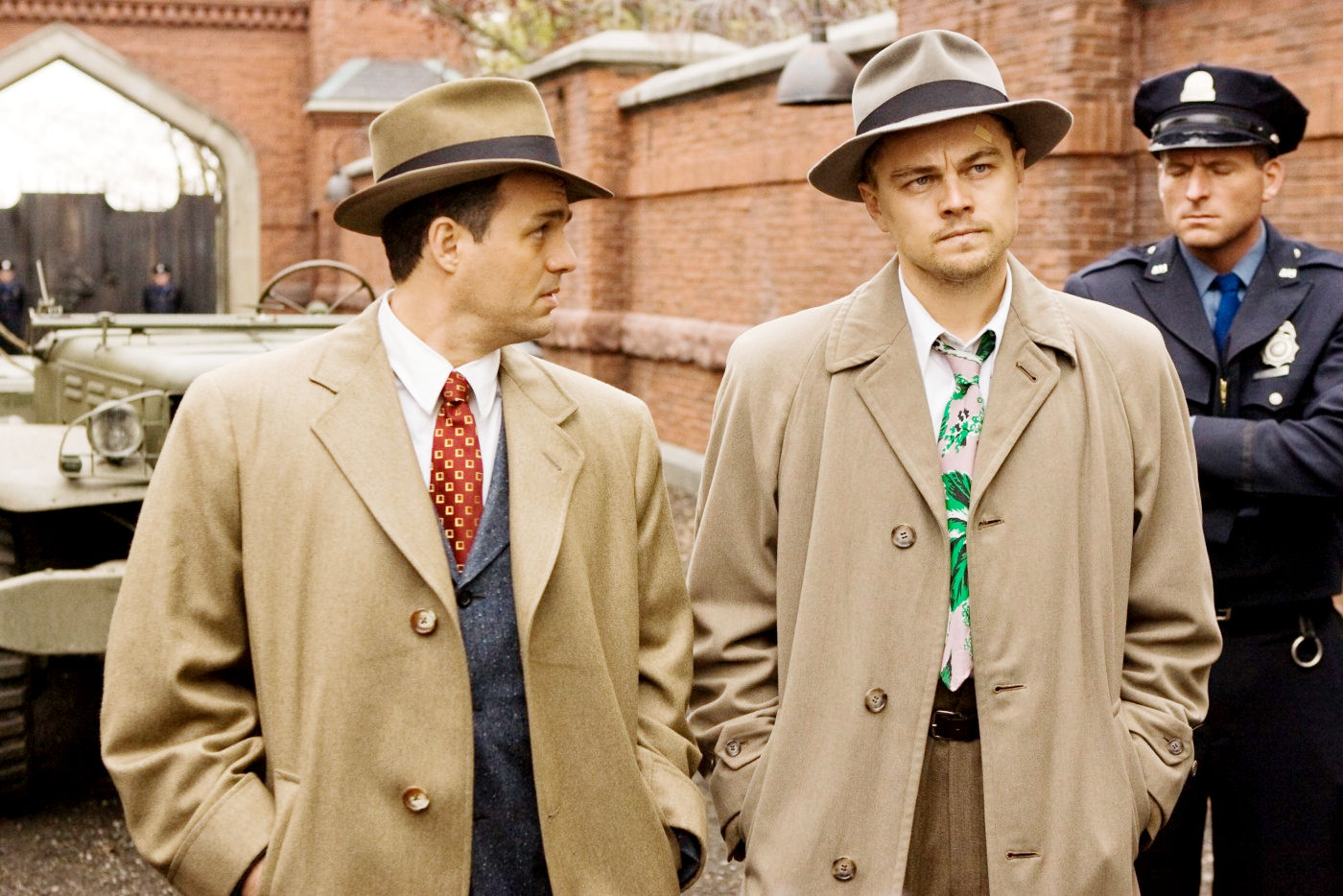
Admittedly, the opening moments of our tale are more than a little creaky, as Scorsese — as per his 1991 remake of Cape Fear — perhaps over-telegraphs the fact that we’re in noir-homage territory here. The year is 1954, and as a rickety ferry chugs along beneath an ominous, very cinematic-looking gray sky, a seasick US Marshall Teddy Daniels (Leonardo di Caprio) fills his new partner Chuck (Mark Ruffalo) in on all the requisite exposition. To wit, these two seafaring gumshoes are checking out a mysterious disappearance on a creepy Island for the Criminally Insane. Teddy’s beloved wife (Michelle Williams), whom he still sees in visions, has passed on account of smoke inhalation after an apartment fire. And — wouldn’t ya know it — one of those Gimongous Storms that fill the nearby Gloucestermen with dread is bearing down on this remote Massachusetts madhouse, right at about the time our two heroes will disembark.
This is all rather ungainly revealed in the first ten minutes or so. But, when our two fedora-topped detectives are met by the officious and strangely aloof deputy warden of the complex (John Carroll Lynch), Shutter Island starts to find its nightmare-at-Arkham groove. It helps that we then meet a few old pros to move things along in that regard. First, the benevolent-seeming Man of Science running the asylum, Dr. Cawley (Ben Kingsley). And then his avuncular, hail-fellow-well-met, and vaguely sinister colleague (old pro Max Von Sydow), who happens to have a Teutonic tendency toward slipping consonants. And that, coupled with the waifish cheekbones of the missing patient (Emily Mortimer), sets off all kinds of unpleasant memories for Teddy of W-W-eye-eye, and the liberation of Dachau…
It is in this first seventy-five minutes or so where Shutter Island really works best. For awhile there, with its melancholy remembrances, plush smoking rooms, fifties detectives, and lurking horrors, the movie is a real triumph of atmosphere. I felt like I’d settled into a really good noir text-adventure like Deadline, Suspect, or even Maniac Mansion, where the crimes are sordid, the suspects range from kindly to malevolent, the atmosphere is gothic through-and-through, the backstory is ever-so-slightly overripe (there may be Nazi-style experiments funded by HUAC going on), and the environment is finite and well-bounded — Nobody’s getting off the island in this here Storm of the Century. And there’s a nightmare at one point, involving Dachau and Ms. Mortimer, that set my teeth on edge as much as anything I’ve seen this side of the Grady sisters. (Some borrowing from The Ring here too, quite frankly.)
Unfortunately, the increasingly aimless Island doesn’t manage to sustain this splendidly eerie vibe throughout its run. Instead, it starts to pile incident upon incident, until the rotting manse of cards eventually tumbles over. When Elias Koteas and Jackie Earle Haley turn up as horribly scarred prisoners of the complex an hour or so in, I thought, ok, this could be creepy. When Patricia Clarkson pops up as a haggard escapee half an hour later, I was thinking ok, but it’s a bit late in the game to be introducing all-new characters like this. And by the time Ted Levine of Monk gets his turn as the exceedingly weird Chief Warden who, in this day and age, would probably relish gladiator movies and the Discovery Channel, I wondered if Shutter Island was actually building toward anything at all.
The answer is, yes, but it too takes awhile. [Some spoilers ahead.] As you may well have expected going in, there’s a Shyamalan-style ending to the case that takes us in a new (but not entirely unforeseeable) direction. The problem is, this ending takes about 25 minutes to play out when it should’ve taken five, including a long digression into a past event that we have fully pieced together on our own by now. I wouldn’t call this ending a cop-out, really, although several earlier scenes (and most notably Ruffalo’s behavior in them) don’t make a lot of sense once we’re privy to the new intel. The problem is more that, like an aircraft taxiing to the gate, it just takes far too long to close the story once this final act is set in motion.
Still, as I said, Shutter Island has its moments. As far as exercises in noir cinema go, I’ve definitely sat through worse than these two and a half hours of Scorsese playing with his haunted mansion playset. If nothing else, you can tell that Marty has a deep and abiding love of the crime-noir genre. And, for at least a good hour or so, his madness is contagious.
